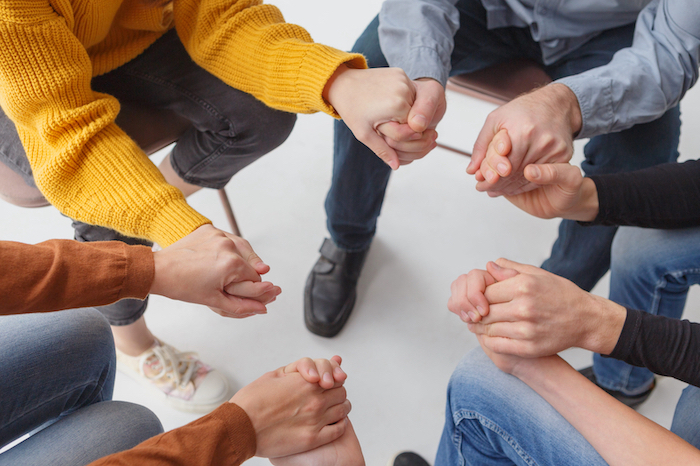In-person meetings would be protected during pandemic
By: Jason Langendorf
August 21, 2020In June, Rhode Island state Rep. Camille Vella-Wilkinson introduced legislation that would declare in-person meetings for Alcoholics Anonymous (AA) and Narcotics Anonymous (NA) essential in her state during the coronavirus pandemic and other declared emergencies.
During the COVID-19 outbreak, shelter-in-place and social-distancing restrictions have at times made AA and NA meetings in shared spaces difficult, if not impossible. Vella-Wilkinson’s bill seeks to protect in-person meetings (which are court-mandated for some individuals) and require measures to ensure the safety of attendees.
“The services provided by Alcoholics Anonymous and Narcotics Anonymous are not only essential, they are necessary for the public health,” Vella-Wilkinson said in a press release. “During the pandemic, AA meetings were designated as a social gathering rather than an essential service, while liquor stores were considered essential and permitted to remain open.”
“To consider [AA and NA} as non-essential when the results can be devastating is not only absurd, it’s reckless.”—Rhode Island state Rep. Camille Vella-Wilkinson
Although many meetings have moved online during the pandemic, and additional telehealth services are available, Alcoholics Anonymous spokespeople acknowledge that remote treatment “has been an adjustment and has at times had its challenges.” Additionally, access to internet and electronic devices to attend online meetings may be a barrier to entry for some seeking treatment.
WJAR Channel 10, NBC’s Warwick, R.I., affiliate, reported speaking to a man, who chose to remain anonymous, who said online meetings fall short of meeting the needs of all those seeking or considering treatment.
“For some people who have long-term sobriety and are doing really good in their programs, that meets their needs,” said the man, an AA sponsor who is five years sober. “But there are other people who need those face-to-face interactions.”
The Substance Abuse and Mental Health Services Administration (SAMHSA) states that disruption of services can lead to relapse for some in treatment. While the U.S. federal government has loosened certain restrictions on telehealth evaluations and prescription of medication in the treatment of substance use disorder (SUD), they cover only certain aspects of treatment therapy. Meetings are another piece of the treatment puzzle, and some of those in recovery say they respond better to the face-to-face interactions and communal spirit that in-person AA and NA groups foster.
“AA meetings are therapeutic for individuals who face the challenge of addiction,” Vella-Wilkinson said. “To consider this service as non-essential when the results can be devastating is not only absurd, it’s reckless. This bill would permanently designate those services as essential for future emergencies.”














